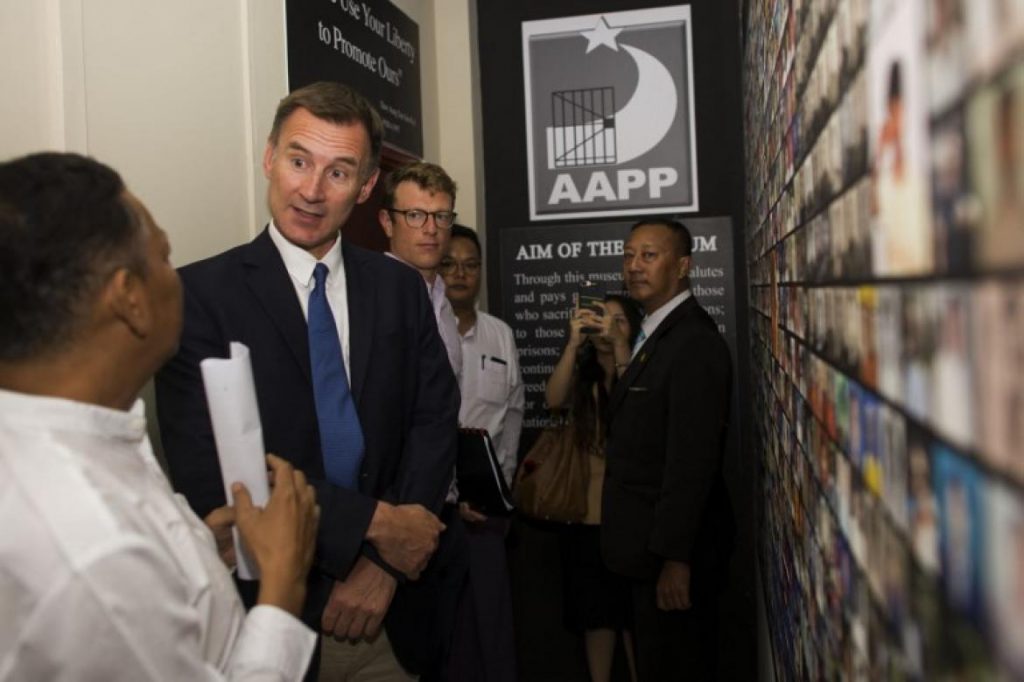By AFP
YANGON — British foreign minister Mr Jeremy Hunt arrived in Myanmar on Wednesday for a busy two-day trip in which he will visit the epicentre of the Rohingya crisis and meet embattled civilian leader Daw Aung San Suu Kyi.
The trip comes a day after UN investigators released a damning and meticulous report outlining why senior Myanmar generals should be prosecuted for genocide against the Rohingya Muslim minority, who were driven from Rakhine State into Bangladesh last year.
Myanmar rejected the independent fact-finding mission’s report as one-sided. But global pressure is building on the country and the chief prosecutor of the International Criminal Court separately announced this week that she was opening a preliminary investigation.
Hunt’s is the most high-profile visit by a UK representative since his predecessor Mr Boris Johnson came in February.
Support more independent journalism like this. Sign up to be a Frontier member.
“I’m in Burma this week to see first-hand some of the issues around the humanitarian crisis faced by the Rohingya people,” he said in a video posted on his Twitter account, using the country’s former name.
The foreign secretary began his visit with a stop-off at the Assistance Association for Political Prisoners museum, which honours political prisoners both past and present, before a visit to the glittering Shwedagon Pagoda.
He asked about censorship and military influence but did not take questions from the media.
On Thursday he will take an army-chaperoned helicopter trip to northern Rakhine State, where the brutal military crackdown which began in August 2017 drove out some 700,000 Rohingya.
He will then head to the capital Nay Pyi Taw for meetings with Aung San Suu Kyi, whose government took power in 2016 in a much-celebrated transition to democracy after decades of military rule.
But the Nobel laureate’s international reputation quickly crumbled for her failure to speak up for the Rohingya.
Under the junta Myanmar jailed thousands of political prisoners. But while many were released as the country opened up to the outside world more than 20 are currently behind bars, according to the AAPP.
The group says this includes two Reuters journalists, Ko Wa Lone and Ko Kyaw Soe Oo, who were jailed earlier this month for seven years each after they exposed a massacre of 10 Rohingya men and boys during the military crackdown.
Myanmar says they broke the official secrets act but Reuters and press freedom advocates have described the trial as little more than an attempt to punish reporting on Rakhine.
“I hope that he [Hunt] can put pressure on the government and military groups to move forward our democratisation and peace process,” said AAPP’s U Kyaw Soe Win.
Hunt has promised to raise both the Rohingya crisis and the case of the Reuters journalists in his meeting with Aung San Suu Kyi.
The UN has called for Myanmar army chief Senior General Min Aung Hlaing and five other top generals to be investigated for genocide, war crimes and crimes against humanity for overseeing operations in Rakhine.







